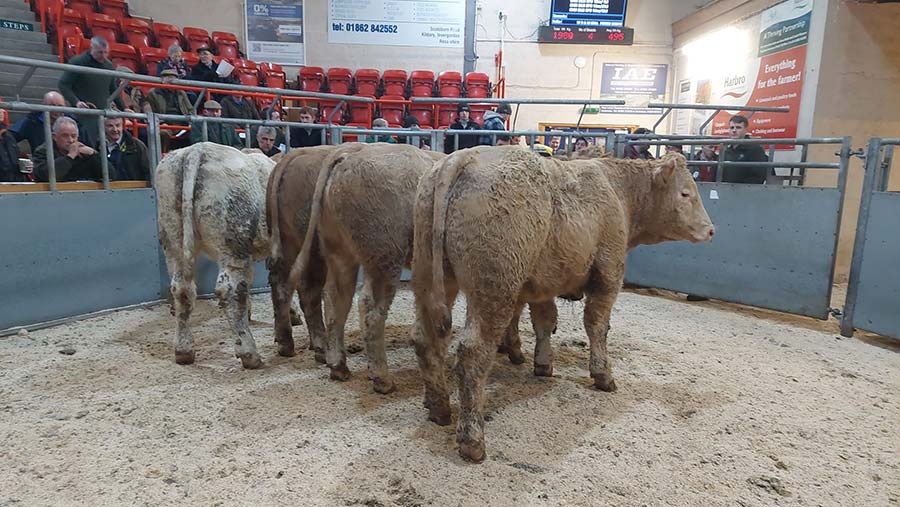Strong stores mean beef finishers need £5.30/kg
 © Dingwall and Highland Marts
© Dingwall and Highland Marts Fierce yearling calf prices of 320p/kg and yarding cattle values of £1,600-£1,700 a head could leave little margin for finishers this spring and summer, traders are warning.
The tight supply of suckler-bred cattle – and cattle in general – has led to calls for factories to pay 520-530p/kg, so prime cattle would gross more than £2,000 apiece.
But analysts say inflation is continuing to bite and consumers are increasingly price sensitive. Supermarkets are concerned price increases will deter footfall.
See also: Video: Outwintering system hopes to beat £163 a cow savings
However, tighter availability of cattle in neighbouring Ireland – a country that has a major effect on British cattle prices – is tipped to keep prices firm this year (see below).
Factors affecting beef outlook for 2024 |
|
|
Positive (bullish) |
Negative (bearish) |
|
|
Recent store and calf trade is “where it needs to be” and may be an incentive to some producers to retain breeding cattle, said auctioneer Daniel Urquhart, of Dingwall and Highland Marts.
Mr Urquhart said big numbers of cull cows were going through markets across northern Scotland.
However, he said breeding cows were getting scarcer. “I expect the store trade to stay where it is providing the fat price doesn’t fall, and I don’t think it will.”
Dingwall’s latest calf sale (620 head) saw yearling bullocks average 324p/kg liveweight and heifers level at 295p/kg liveweight. Trade had lifted since the expensive autumn sales, he said.
Exeter’s store sale also showed cattle supplies were continuing to tighten in the South West. On Friday 12 January, three pens of South Devon stores aged about 21 months broke the £1,900 barrier. The all-steer average was £1,315 a head.
Simon Alford, auctioneer at Exeter, said a “scorching” trade for close to 350 cattle saw a massive jump in prices. He said farming-type Charolais-cross steers at 19-20 months were in strong demand, selling at £1,460-£1,625.
